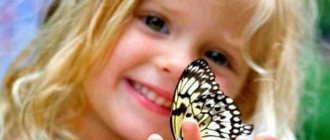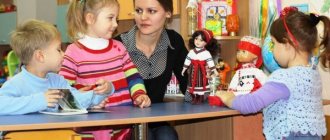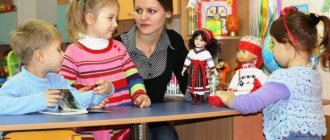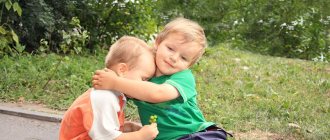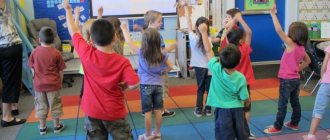Directions of moral development of preschool children
Definition 1
Moral development is the formation in a person of basic moral properties, a meaningful perception of his own personality and its place in the social environment, an understanding of his purpose and the need for continuous improvement of his personality.
Moral development is carried out in the course of moral education.
Moral education is the individual’s assimilation of the fundamentals of morality, the development of moral guidelines for behavior, the assimilation of the fundamentals of the moral functioning of society and the behavioral habits inherent in it.
Moral education is based on moral norms and principles of social behavior. It reflects the continuity of generations and the transfer of social experience.
Are you an expert in this subject area? We invite you to become the author of the Directory Working Conditions
Figure 1. Moral education. Author24 - online exchange of student work
If moral norms are a social category, i.e. they reflect the requirements of society for the behavior of an individual, his compliance with the norms of social interaction, then morality is an internal category, i.e. it is an internal regulator of individual behavior. The moral behavior of an individual in a social environment and its overall development depend on how developed this regulator is.
Moral education begins from an early age of a child. This is relevant because the behavioral habits formed in preschool age become stable foundations of human behavior throughout his life.
Finished works on a similar topic
Course work Moral education of preschool children 410 ₽ Abstract Moral education of preschool children 230 ₽ Test work Moral education of preschool children 220 ₽
Receive completed work or specialist advice on your educational project Find out the cost
The moral education of preschool children is aimed at the formation of an original personality with the skills of social interaction and self-control of behavior. The child must learn to control his actions and actions, express opinions, take into account the needs and interests of another person, develop adequate self-esteem and express his opinions and views, as well as constructively defend his interests in society.
The moral development of a preschooler is focused on the formation of his moral character. The main directions of moral development of a preschooler are:
- Formation of the pupil’s personal properties. It is necessary to create conditions for the disclosure of the natural inclinations of the individual and the disclosure of his potential.
- Moral development of personality. Here, the moral experience of a preschooler’s life is formed, and he masters the experience of social behavior and interaction.
- Developing an adequate attitude towards others: respect for other people’s opinions and points of view, acceptance of someone else’s point of view, different from one’s own, as correct, equality and equivalence of all participants in the social sphere of activity.
- Patriotic education. It is focused on the formation of civic qualities of an individual: love for the Motherland, respect for the customs and traditions of one’s people, awareness of one’s belonging to a particular culture.
- Mastering ethical standards of behavior. They reflect the values of the social environment and the rules of behavior in society, which are unspoken. They are based on the relationship between the interests of the individual and society.
In preschool age, the foundations of moral judgments and assessments are developed. The child comprehends them and learns to apply them in practical activities. In order for a child’s behavior to be formed on the basis of his conditioning by moral norms, it is necessary to organize a system of moral education that takes into account the age-related characteristics of the development of preschoolers and focuses on the social development of the pupil’s personality and his comprehensive humanistic development.
Consultation for educators “Methods of moral education in preschool educational institutions”
Consultation for educators
“Methods of moral education in preschool educational institutions”
Moral education of preschool children is the purposeful activity of the teacher to develop in children moral feelings, ethical ideas, instilling norms and rules of behavior that determine their attitude towards themselves, other people, things, nature, society, i.e. This is a purposeful process of introducing children to the moral values of humanity and a particular society.
In the preschool years, under the guidance of adults, the child acquires initial experience of behavior, relationships with close people, peers, things, nature, and learns the moral norms of the society in which he lives. In a society of peers, positive relationships are established between preschoolers, goodwill and respect for others are formed, and a feeling of camaraderie and friendship arises.
Objectives of moral education:
- - formation of ideas, moral feelings, moral habits and norms, behavioral practices.
- — education of humane feelings and relationships, collectivism, friendly relationships, culture of behavior, discipline, hard work, patriotism, tolerant attitude towards people of different nationalities.
Main directions of moral education of preschool children
- Nurturing humane feelings and relationships
Humanism is the core and indicator of a person’s moral education, the nature of his relationship to people, to nature, to himself (sympathy, empathy, responsiveness, kindness). The basis is the ability to understand another, to transfer the experiences of another to oneself.
- Fostering collectivism
The collectivistic orientation of a child’s behavior is a desire for other people, awareness of the opportunity to realize one’s interests among them, and the ability to abandon personal aspirations for some time for the sake of recognition by peers. This is an integral personality quality, manifested in benevolence, responsiveness, empathy, restraint, and responsibility to a group of peers.
- Nurturing friendships
Friendly relationships between children are a certain form of communication that has a moral orientation, regulated by norms and rules of behavior accessible to the child. These relationships are characterized by meaningful relationships between individual children (selective pair friendships), as well as between all children in the group.
- Fostering a culture of behavior
The culture of behavior of a preschooler is a set of stable forms of everyday behavior useful for society in everyday life, in communication, and in various types of activities. Components of a culture of behavior:
- Culture of activity
– manifested in the child’s behavior in classes, in games, while performing work assignments (the ability to keep in order the place where he works, studies, plays; the habit of finishing the work he has started, treating toys, things, books with care).
- Communication culture
– the child’s compliance with the norms and rules of communication with adults and peers, based on respect and goodwill, using appropriate vocabulary and forms of address, as well as polite behavior in public places and everyday life. A culture of communication necessarily presupposes a culture of speech (the preschooler has a sufficient vocabulary, the ability to speak concisely, while maintaining a calm tone).
- Cultural and hygienic
skills - neatness, keeping the face, hands, body, hairstyle, clothes, shoes clean, food culture.
- Cultivating discipline
- this is the obligatory and conscious subordination of one’s behavior to established norms of social order. Norms of behavior characterize the general direction of relationships and behavior and are specified in the rules (for example, the norm “Be attentive and caring towards the people around you” is specified in the rules: do not play noisy games when someone is relaxing nearby; if a guest comes to the group - invite him to sit down, etc.). A person who, under any circumstances, knows how to choose a moral form of behavior and, despite obstacles, will adhere to it, is called a disciplined person.
- Nurturing hard work
– this is a quality that characterizes the subjective disposition of an individual towards his work activity; manifests itself in diligence, diligence, a positive attitude towards the work process, initiative, and conscientiousness.
- Education of patriotism
. Patriotism in a modern preschool educational institution is the education in a child of moral qualities, a sense of responsibility, love, interest in the country, and hard work; this is a feeling of belonging to one’s land, one’s people, the consciousness of one’s own relevance in this country.
- Education of religious tolerance and tolerance
. Tolerance (from Latin - patience) is the ability to tolerate another, his dissent or dissent. The basis is recognition of the self-worth of any person, acceptance of a person as he is. Raising children in the spirit of religious tolerance means instilling a respectful attitude towards the citizens of one’s country - believers of various faiths, through familiarization with the norms of human behavior prescribed by religion, because All world religions cultivate universal human values - truth, goodness, beauty.
- Education of internationalism and ethics of interethnic communication.
International education is a purposeful activity to develop in children of all peoples of Russia a sense of freedom, equality and brotherhood, respect for each other, and a culture of interethnic communication. The main object of study should be the peoples whose homeland is Russia. Raising the ethics of interethnic communication in children is the formation of the child’s value orientations, a culture of attitude towards one’s own people and other nations, towards people of different nationalities.
Educational methods are methods of pedagogical influence through which the child’s personality is formed. V.G. Nechaeva identifies two groups of methods of moral education:
1. organization of practical experience of social behavior (training method, demonstration of action, example of adults or other children, method of organizing activities);
2. the formation of moral ideas, judgments, assessments (conversations, reading works of art, viewing and discussing paintings, illustrations). The author includes the method of persuasion, positive example, encouragement and punishment in both the first and second groups.
Classification V.I. Loginova - proposes to combine all methods into three groups:
1. methods of forming moral behavior (training, exercise, management of activities);
2. methods of forming moral consciousness (beliefs in the form of explanation, suggestion, conversation);
3. methods of stimulating feelings and relationships (example, encouragement, punishment).
In preschool pedagogy, a classification of methods of moral education of children has been adopted: methods of developing skills and habits of behavior; methods of forming moral ideas, judgments, assessments; behavior correction methods.
1. Methods of developing skills and habits of behavior. This group of methods ensures that children accumulate practical experience of social behavior. This includes a method of teaching a child to positive forms of social behavior (saying hello and goodbye, thanking for a service, politely answering questions, treating things with care, etc.). They are accustomed to this through exercises that involve the inclusion of children in a variety of practical activities, in communication with peers and adults (in natural and specially created situations). The method of assignment gives the greatest affect if it is combined with the example of adults or other children. At the same time, the child should have a desire to be like, to imitate. If the example is reflected in the child’s activities, we can talk about its significance and active influence on the child’s personality. The method of targeted observation organized by the teacher is of great importance (for example, younger children observe the friendly games of older preschoolers). This is not just a passive method, it feeds children's experience, gradually shapes their attitude towards the phenomenon and positively influences behavior. You can use action display. This method is effective in developing cultural behavior skills in children. The method by which the teacher organizes activities that are socially useful is very important (for example, collective work in cleaning the area, planting shrubs, flowers, etc.). An important method is children's play, especially role-playing. It gives the child the opportunity to most freely and independently establish relationships with other children, choose topics, game goals and act on the basis of knowledge of norms and rules of behavior, existing ideas about the phenomena of reality. The game allows an adult to clearly see the achievements and shortcomings in the level of moral development of the child and outline the tasks of his upbringing.
2. Methods for forming moral ideas, judgments, and assessments include: conversations on ethical topics, reading fiction, stories, viewing and discussing paintings, illustrations, filmstrips; method of persuasion.
These methods are widely used both in the classroom and in children’s everyday lives. At the same time, the teacher should avoid moralizing; children’s learning should proceed against the background of their positive emotional state. Forming in children correct assessments of people's behavior and relationships contributes to the transformation of moral ideas into motives for behavior.
3. Behavior correction methods. If the methods of the first two groups belong to the main methods of moral education, then the methods of this group are auxiliary. These are methods of reward and punishment. Rewards and punishments most often record the result of a child’s moral education. Encouragement (of the teacher) can manifest itself in different forms: approval, a smile, a nod of the head, a gift, a story about the positive actions of the child with the family or in front of peers, joint work of children and adults, assignment of a responsible task, going to the cinema, park, etc.
Principles of moral education of preschool children
- unity and integrity of the educational process (establishing continuity between the tasks, content and methods of moral education at all stages of age development);
- raising children in a team (the teacher gradually forms a group of children as a primary team, which is characterized by elements of mutual assistance);
- exactingness towards the child combined with respect for his personality (respect for the personality of the pupil means faith in his strength, manifestation of goodwill, sensitivity; in each child one must find positive qualities and rely on them in education);
- taking into account the age and individual characteristics of children (the teacher must know his pupils well, take into account the temperament, character traits, life and moral experience of the child, characteristics of the emotional sphere);
- unity of influence on the feelings, consciousness and behavior of children (requires an integrated approach to the child when choosing means and methods of moral education);
- systematicity and consistency;
- unity of requirements for children in kindergarten and family.
The means used to achieve the goals of moral education are: artistic means, nature, children’s own activities, communication, and the environment.
A group of artistic means: fiction, fine arts, music, cinema, etc. This group of means is very important in solving the problems of moral education, since it contributes to the emotional coloring of cognizable moral phenomena. Artistic means are most effective in developing moral ideas and feelings in children.
The most important means of developing moral consciousness is a positive example taken from life. These can be literary heroes, characters from children's films, plays.
Artistic media - performances, cinema, music, visual arts, everything that has an emotional and moral impact on a preschool child. Excursions to exhibitions, theaters, watching films and videos are very important here, as well as an emotional and meaningful selection of artistic means, taking into account the age and psychological characteristics of preschool children, their emotional and mental perception.
The means of moral education of preschool children is nature. It is able to evoke humane feelings in children, a desire to take care of those who are weaker, who need help, to protect them, and helps to build self-confidence in the child. The impact of nature on the moral sphere of children’s personality is multifaceted and, with appropriate pedagogical organization, becomes a significant means of educating the child’s feelings and behavior.
Natural remedies - features of the impact of the surrounding nature on the formation of moral foundations in preschool children, the ability to develop good feelings in children, and the desire to take care of animals and plants. All this forms in the child not only a positive, caring attitude towards the world around him, but also confidence in his own importance as a part of the world around him.
It is very good if a preschool institution (kindergarten, club) has animals that are suitable for keeping in these conditions. These could be turtles, parrots, hamsters, aquarium fish. They bring great joy to most children as children enjoy watching their behavior and feeding and caring for their pets. This develops in children the need to take care of living beings that depend on them, and gives them confidence in their own abilities.
The means of moral education of preschoolers is the children’s own activities: play, work, learning, artistic activity. Each type of activity has its own specifics, serving as a means of education. But this means - activity as such - is necessary, first of all, when cultivating the practice of moral behavior. A special place in this group of means is given to communication. It, as a means of moral education, best fulfills the task of correcting ideas about morality and cultivating feelings and relationships. In this case, the child’s established trusting relationships with adults play an important role. The teacher must remember that a reasonable combination of affectionate and demanding attitude towards preschool children is crucial.
The means of moral education can be the entire atmosphere in which the child lives; the atmosphere can be imbued with goodwill, love, humanity or, on the contrary, cruelty and immorality.
The environment surrounding the child becomes a means of nurturing feelings, ideas, and behavior, that is, it activates the entire mechanism of moral education and influences the formation of certain moral qualities.
The environment (family, teachers, educators, peers) has a huge influence on the formation of his moral attitudes. Employees of preschool institutions are obliged to create an atmosphere of goodwill, warmth, understanding, and humanity for their students. Only in such conditions can one develop a full-fledged personality and give the opportunity to reveal all the abilities and talents inherent in a child from birth. This is important not only for the child himself, but also for society as a whole. After all, the more morally perfect, kinder, more humane each member of society is, the better it is for us and our children to live in it. It is this most important moral task that is assigned to specialists in preschool and pedagogical institutions.
It is important for teachers to be able to tactfully, but unobtrusively, show attention and interest in the problems of children, and the emotional manifestations of adults should not be stingy and limited, since they serve as the main behavioral guidelines for pupils of preschool institutions. The absence of pronounced emotional manifestations can serve as a limiting factor in the development of a child’s moral, speech, intellectual and even physical development.
One cannot underestimate the importance of a preschooler’s positive attitude on his body as a whole. Excessive demands on a child can provoke the development of such undesirable qualities as the desire for constant solitude, hostility towards elders and peers, envy, and bitterness. Such a child may have serious difficulties in relationships with other people. However, with the right educational approach, emotional responsiveness can be an important factor in the formation of positive personal qualities.
A child needs constant approval from adults involved in his education and upbringing. Teachers should express their approval more often if the child readily helps his peers, sympathizes with their troubles, and rejoices at their successes. You need to be able to share the child’s joy if he managed to achieve positive results in the task (draw, assemble a construction set, make a craft, applique, etc.). It is necessary to express confidence that he will cope with the assignment given to him (“You will be great at putting your toys away, putting your desk in order”). This approach gives effective results if the child is timid and uncommunicative, refuses to complete the task because he is afraid of not being able to cope (“They will laugh at me”). However, there is another extreme, in which overly lively and sociable children take on many assignments and, due to their lack of concentration and disorganization, do not complete any of them. They need to patiently explain that each task requires certain efforts, patience, and attentiveness. Care should be taken to ensure that next time the task is not carried out carelessly, otherwise the child will begin to cultivate such undesirable qualities as laziness, absent-mindedness, and a frivolous attitude towards the instructions of elders.
The choice of means of education depends on the leading task, the age of the pupils, the level of their general and intellectual development, the stage of development of moral qualities (we are just beginning to form a moral quality, or we are consolidating it, or we are already re-educating).
The example of adults at this age plays a huge role for a child, so it is very important for teachers of preschool educational and educational institutions to be able to instill in children such qualities as philanthropy, collectivism, patriotism, and hard work. Therefore, the personal moral example of adults must be impeccable. When setting themselves the tasks of moral education, educators and teachers need to take into account the age characteristics of the preschooler. Children are extremely susceptible, their psyche is very plastic. This was noticed by ancient philosophers studying the problems of raising children. Everything that the child perceives is carefully studied and remembered by him for a long time. Preschool children are very sensitive to the emotions of others, so a calm, balanced state of the teacher is important when communicating with them. Preschoolers have a very strong tendency to imitate adults, especially at an earlier age. Therefore, educators should set a positive example of behavior. A negative example is very undesirable, since a child (especially under five years old) is unable to independently analyze and evaluate the actions of others, and therefore cannot determine what is worthy of imitation and what is not.
Currently, instead of the concept of “moral education”, “value-oriented activity” or “personal orientation towards the moral values of society” are used.
For each age group, with different types of activity, in individual life situations, there are their own value systems. In addition, values change and develop both historically and individually.
At preschool age, a value system is just beginning to take shape. From the diverse historical values, it is necessary to select those that will become the foundation for the further moral development of the individual. Sh. Amonashvili proposed a set of moral values that need to be laid down in preschool and primary school age:
a) attitude towards loved ones, manifested in love, care, attentiveness, empathy, tenderness;
b) attitude towards other people - in fairness, honesty, attentiveness, the ability to empathize, have compassion;
c) attitude towards oneself - reasonable love, exactingness, modesty;
d) attitude towards nature - careful awareness that nature is a source of life and aesthetic pleasure;
e) attitude to work - creative diligence and readiness to overcome difficulties;
f) attitude to learning - meaningful, interested;
g) attitude to life - optimistic;
h) attitude towards surrounding objects - careful, based on the fact that all objects are the result of labor intended for certain vital functions (if they do not exist, life will become inconvenient);
i) the attitude towards beauty is enthusiastic.
In educational institutions, to implement the tasks of moral education, the following is used:
1) communication between adults and children, during which children learn the content of basic moral values;
2) the example of surrounding adults;
3) reading fiction. In works of art, the essence of many moral values is revealed in a vivid emotional form;
4) in the daily activities of children, knowledge about moral values is consolidated, and situations should be used in which the practical significance of these values is confirmed;
5) problematic situations. A situation with a problematic solution is created. Explains what to do;
6) the most important means of education is complex role play. In it there is a transformation and acquisition of a personal and individual coloring of those moral relations that children observe in life.
Tasks of moral education of preschool children
The moral education of preschool children is focused on developing their moral feelings, ideas and guidelines for social activity, as well as behavioral habits and motives for social activity.
The moral education of preschool children is focused on solving two groups of problems:
- Tasks for developing a mechanism for the moral development of a child. This group of tasks is permanent and sustainable. The mechanism of moral development is associated with the choice of forms, methods and technologies for organizing educational activities, aimed at developing moral ideals in students that correspond to a specific stage of socio-economic development of society.
- Tasks to develop certain qualities and social skills in an individual. These tasks reflect the need to achieve a certain level of development of society and meet its needs. At every historical stage in the development of society, it requires people endowed with certain qualities. Therefore, the tasks of this group change in accordance with the dynamics of the development of the social environment.
Moral education of preschoolers is focused on:
- Education of the fundamentals of cultural behavior and cultural interaction in the social environment;
- Developing collective interaction skills;
- Education of the fundamentals of humanism and humane qualities of the individual;
- Fostering hard work;
- Nurturing patriotic qualities.
What do we mean when we talk about moral education?
Moral education is the inculcation in children of high spiritual and moral principles, a sense of patriotism for the Motherland, and special regulation of ways of thinking and behavior accepted in civil society.
The first experience of working on the structure of behavior and the formation of moral principles begins in kindergarten, when adults give the first lessons to preschoolers. From an early age, a kindergarten teacher instills in children love for the Motherland, frugality and respect for human labor, goodwill in relationships, teaches activity and initiative, independence in action, mutual assistance and mutual assistance, selflessness.
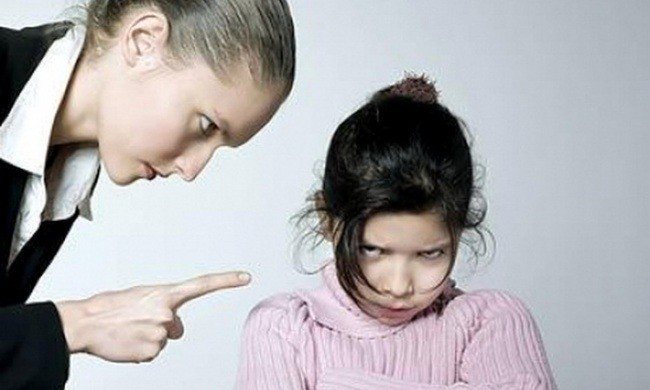
The research work of scientists studying the psychology and capabilities of preschool children shows that preschool children have great potential in matters of educating their morality. Children's consciousness is able to control their behavioral abilities, such as active behavior, independence in their actions and choices, and the manifestation of a certain interest in the environment.
Older preschoolers are capable of collectivization, where feelings of friendship and camaraderie are already manifested in their joint actions. The more a child sees correct actions and deeds, and the more often he hears positive things, the higher his moral education is - this is the main task of educators.
The child must develop positive habits and motives for moral behavior.
Everything that a child sees and hears that has a negative character and negative actions is also deposited in the child’s consciousness and harms his morality.
Children like to communicate with adults; with frequent communication, they develop a feeling of love and affection; children happily carry out assignments, try to please and do something pleasant for adults.
Preschoolers tend to show emotional responsiveness to adults’ reactions to children’s good and bad actions. When children are scolded, they worry and get upset; when they praise them, they smile and rejoice. Such responsiveness is the basis for the formation of a child’s moral feelings.
Preschoolers, due to their age, experience joyful or sad feelings not only for themselves, but also for their peers. They are able to be happy and sad for their comrades out of a sense of solidarity, which leads to effective actions to provide moral support. Preschoolers do not know how to be cunning or disingenuous; their feelings are sincere and not false.
In kindergarten, you can see a picture when one of the children is injured or bumped, and peers gather around him and sadly feel sorry for him.
Moral feelings acquire their consciousness closer to middle age, they are able to appreciate the work of other people, and are able to show feelings of love for their home and region.
By the age of six, children begin to develop a sense of self-esteem, a sense of duty, they recognize the justice of actions, and develop feelings of respect towards other people. Children of this age begin to approach tasks and assignments with full responsibility.
The task of kindergarten teachers is not to miss the time when children show the ability to develop moral feelings, to instill in children a love for their native land and the country in which the children were born and live, and also to teach them to respect people of other nationalities and their culture.
One of the characteristics of children is imitation, but children do not recognize or understand the morality of the actions they perform, and this can be fixed in the mind by negative life experiences.
In this regard, the task arises for parents and educators to protect preschoolers from objects and situations of imitation that carry immorality of feelings and behavior and from such life experiences.
It is very important to teach a child simple things, such as: goodwill - respect for adults, maintaining good relationships with peers, thrift, politeness, friendliness, cultural behavior.
With the initial skills acquired, the child is closer to the older preschool age, will learn to comprehend his actions and behavior, moral behavior will become the norm of life of the preschooler and will become his companion in further development.

